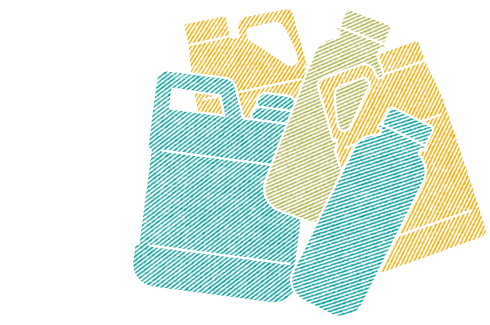As soon as the first Covid-19 cases were confirmed in Brazil, inpEV created an emergency committee to follow the pandemic effects in the country and in the Campo Limpo System. This committee met around 70 times until December. All suspected and confirmed Covid-19 cases were monitored on a daily basis.
A home office model was established for all headquarter workers in São Paulo (SP). Starting in October, there was a gradual process of resuming in-office work, with all offices being adapted to ensure distancing among people, distribution of 70% alcohol hand sanitizers and masks, home office clearance twice a week and commuting support in private vehicles. In order to clarify worker doubts, a pamphlet containing health authority recommendations was distributed. Risk group workers continued working remotely. At the end of the year, due to the new increase in Covid-19 cases, the presence of workers in the office was authorized by demand and only twice a week.
At the central stations, all teams received frequent instructions concerning the need to use masks, sanitize hands and keep a safe distance from colleagues and farmers returning packaging material, among other measures. Daily Safety Dialogs were one of the moments to share recommendations on how to protect against the coronavirus. During the period in which the System's operations were only partial, team rotation was adopted at the central stations to reduce the circulation of people.
Physical and psychological health
To ensure adequate ergonomic conditions, all headquarter workers took chairs, keyboards and computer peripherals to their homes. Workplace exercise was adapted to an on-line format and was done twice a day so that the highest number of workers at the central stations and at headquarters and even their family members could participate.
The Count on Me program, a telephone channel for psycho-emotional support, was also created. The tool was available to all inpEV workers, all central station and partnering outpost professionals as well as their families.
Ensure what is essential
The disposal of empty packaging or post-consumption leftovers ensures field protection by preventing incorrect disposal and soil and water contamination risks. Thus, it was fundamental to ensure that activities were carried out without submitting workers to any risk.
At the beginning of the pandemic, when little was known about effective means of protection and the speed of contamination, the central stations and outposts reduced by half their work capacity. With the implementation of health protocols, unit risk mapping and team training, the units were able to resume full operations after one month.
Among the actions, a separate flow was created to receive farmers that arrived to return their packaging. By working with gates closed, only one farmer at a time was authorized to access the unit for delivery purposes. The adEV electronic system (Scheduled Return of Empty Packages) also contributed to improve farmer flow at the units. The itinerant collection stations were reduced and suspended in some cases, according to the contamination curve of the new coronavirus. inpEV also offered notices and guidelines to all central stations and outposts.
Among these measures, the following are highlighted:
- > Mandatory mask use;
- > Installation of lavatories and readily available hand sanitizer;
- > Individual entry at the units;
- > Safe distancing between workers and farmers; and
- > Delivery receipts sent by e-mail.
